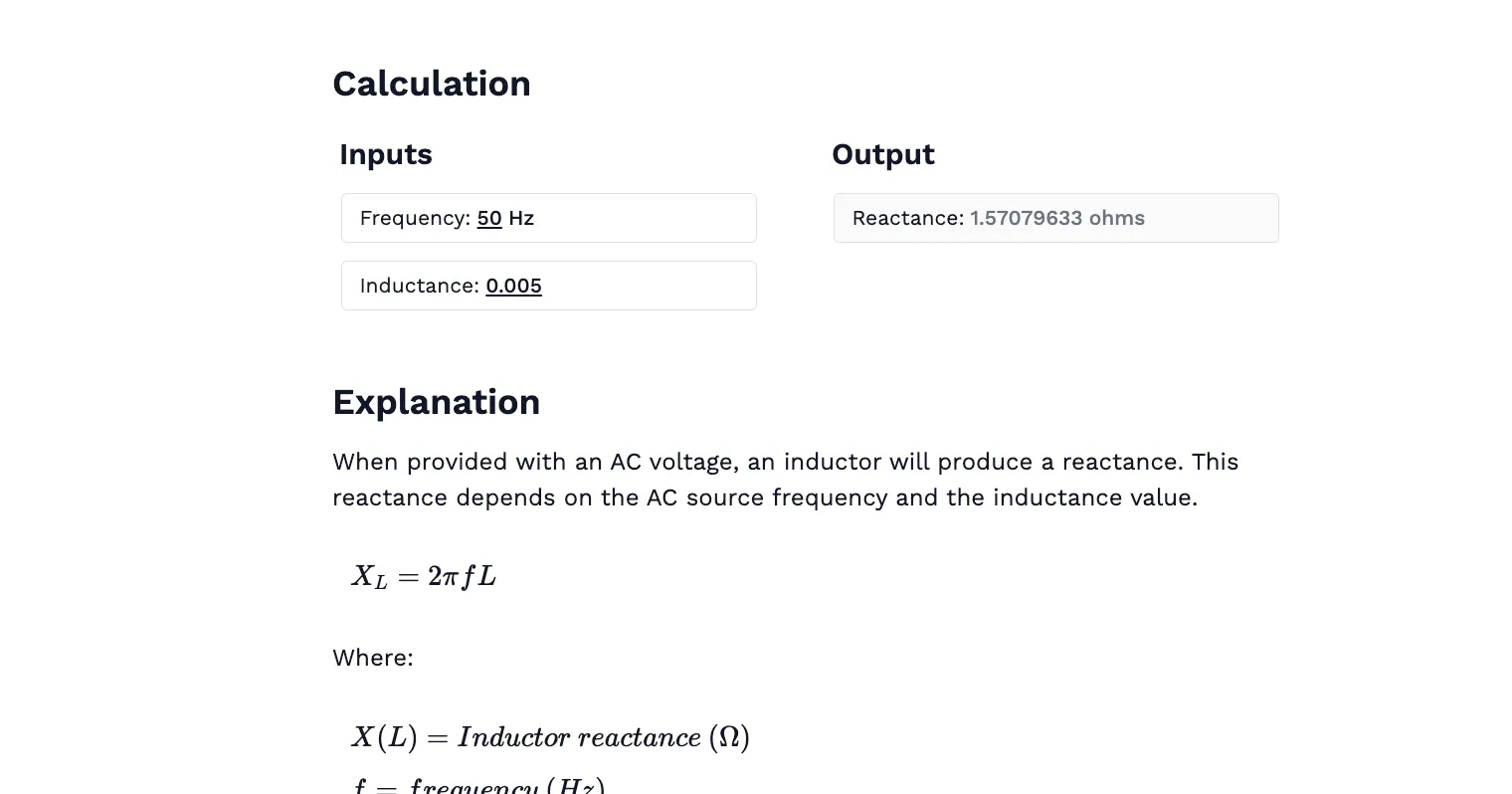Free Inductive Reactance Calculator. Step-by-step, engineering-grade tool with downloadable report.

This template is not available yet. You can sign up and create it yourself!
Or let us know if you'd like to be notified when it’s ready:
About this calculator
The Inductive Reactance Calculator allows you to determine the reactance of an inductor in an AC circuit by using input parameters like frequency and inductance. Reactance is similar to resistance, but while resistance opposes the flow of current, reactance opposes changes in current. This tool is crucial for understanding the behavior of inductors in AC circuits, ensuring proper design and component selection.
This calculator is for:
- Electrical engineers designing and analyzing AC circuits with inductive components.
- Technicians working on troubleshooting and optimizing electrical systems that use inductors.
- Students studying AC circuit theory and learning how inductive components behave in dynamic electrical environments.
The calculator provides quick feasibility checks for inductive reactance, helping users evaluate how inductors will affect the performance of AC circuits at different frequencies. While manual methods involve using complex formulas and referencing inductance tables, this calculator simplifies the process, delivering results instantly and accurately.
For further reading on inductive reactance and AC circuits, "Introduction to Electric Circuits" by Richard C. Dorf and James A. Svoboda is an excellent resource that covers the principles of reactance and impedance in electrical circuits.
Engineering templates
Common calculators
Design guides
FAQs
What is inductive reactance and why is it important?
Inductive reactance is the opposition an inductor presents to changes in current flow in an AC circuit. It affects how inductors store and release energy, influencing circuit behavior and performance.
How does frequency affect inductive reactance?
Inductive reactance increases with frequency, meaning that inductors oppose current changes more strongly at higher frequencies. This is important for designing circuits that operate over a range of frequencies.
How is inductive reactance different from resistance?
While resistance opposes the steady flow of current, inductive reactance specifically opposes changes in current flow. Reactance is frequency-dependent, whereas resistance is constant.
Learn about the benefits of using CalcTree on engineering projects!


